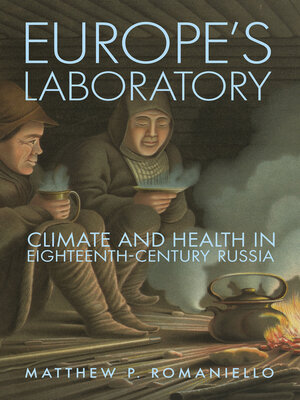Europe's Laboratory
ebook ∣ Climate and Health in Eighteenth-Century Russia · NIU Series in Slavic, East European, and Eurasian Studies
By Matthew P. Romaniello

Sign up to save your library
With an OverDrive account, you can save your favorite libraries for at-a-glance information about availability. Find out more about OverDrive accounts.
Find this title in Libby, the library reading app by OverDrive.



Search for a digital library with this title
Title found at these libraries:
| Library Name | Distance |
|---|---|
| Loading... |
Europe's Laboratory is a history of eighteenth-century naturalists and physicians who were involved in the creation of a classification system for the people of the Russian Empire. These Enlightened scholars traveled through Russia describing its people, landscape, and customs. In an era when climate was seen as a significant factor affecting health and bodies, these men wondered: How did the Russians, a "cold" people—phlegmatic or melancholic, according to humoral theory—manage an empire?
Russia's empire, as Matthew P. Romaniello shows, contradicted the medical knowledge reflecting centuries of experimentation and practice. In solving this riddle, naturalists and physicians would unlock the secret of Russia's success and create a typology of imperial bodies, a guide toward managing the empire's diversity, to prepare Russia for greater successes in the nineteenth century. Rather than an underpopulated region of unambitious people, eighteenth-century Russia was a dynamic empire that mastered skills to support settler colonialism in climates unfamiliar to other Europeans. Europe's Laboratory makes a significant contribution to the most understudied era of Russian history while engaging the broader, global debates on the formation of race theory in colonial contexts.







